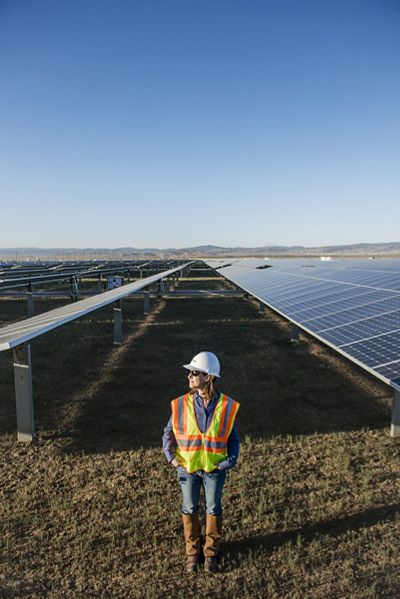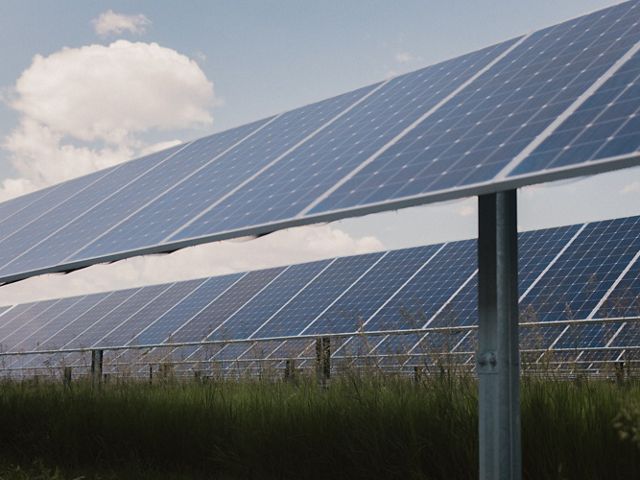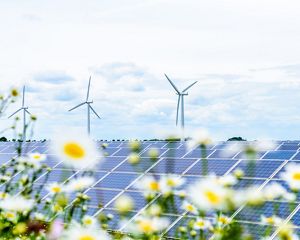
What’s at stake for clean energy in the U.S.
Clean energy tax credits are driving investments across the country— but changes proposed by Congress will affect families and energy competitiveness
The United States is experiencing a clean energy renaissance. But the path forward is far from certain. Congress is making decisions right now on the budget reconciliation bill that will determine whether the country's clean energy boom will continue or if it will lose momentum.
Since August 2022, nearly 2,400 new clean energy facilities have opened across the U.S. From new projects adding much-needed electricity to the grid, to the raw materials and technologies that go into batteries and solar panels, these investments total $321 billion. Looking ahead, another $522 billion in announced projects are still in the pipeline.
Clean energy projects are expanding domestic energy supplies and contributing to American energy abundance. Supply chains are moving back to the U.S. and reinvigorating domestic manufacturing. This is creating new jobs and economic opportunities. The result? Lower costs for American households and cleaner air for people across the country.
Bottom line—clean energy helps our energy sector, our communities and American businesses that compete globally.

The catalyst fueling this new clean energy economy is a suite of federal tax credits that Congress passed in 2022. According to research recently commissioned by The Nature Conservancy, from now until 2032, these tax credits will support nearly $32.5 billion in annual economic value add, generate over $16 billion in wages and support more than 285,000 jobs annually.
Despite all the benefits these tax credits are delivering, their future is in jeopardy. These provisions are part of the budget reconciliation legislation, the “One Big Beautiful Bill,” that is making its way through Congress. When the budget discussions started a few months ago, some members of Congress suggested repealing all the tax credits in one swoop. In response to a groundswell of efforts from industry, investors and nongovernmental organizations, other representatives in the House and Senate publicly acknowledged the benefits that the tax credits are delivering for their constituents. Members of Congress signed multiple letters of support, spoke in the press about more targeted changes instead of a full repeal and worked to massage the bill text.
Even with this critical mass of support, the budget reconciliation legislation that passed the Senate in July would make stark changes to the existing tax credits. If enacted, there would be significant impacts to a number of economic sectors:
Impacts to existing tax credits:
-
Industrial
Restrictions and limitations were added to tax credits supporting advanced manufacturing of clean energy components, such as solar panels and critical minerals, and carbon capture and storage that will make it difficult to utilize the incentives. The time period for the clean hydrogen tax credit would be shortened to end in 2028.

Economic Research
-
BW Research ran two different scenarios:
- Baseline impacts if the tax credits remain unchanged.
- Impacts if the changes in the House reconciliation bill become law.
The results speak for themselves. Clean energy is critical to supporting American jobs and the economy.
The cuts the Senate bill makes to the tax credits will slow investments in clean energy and undermine the many benefits that it provides. The costs will fall on states and communities that are counting on new investments and the promise of a clean energy economy. Workers will face uncertainty about their jobs. Communities may have to worry about energy reliability. And families may see their utility bills rise.
Clean energy is our best path forward for achieving U.S. energy independence and staying competitive on the global stage. TNC’s work on climate and clean energy doesn’t end here. We will continue to advocate for policies, advance clean energy projects and work with our partners and communities across the country to ensure the benefits of clean energy work for everyone.
Sign up to receive TNC updates and news
Sign up to receive monthly news and policy updates from The Nature Conservancy.


